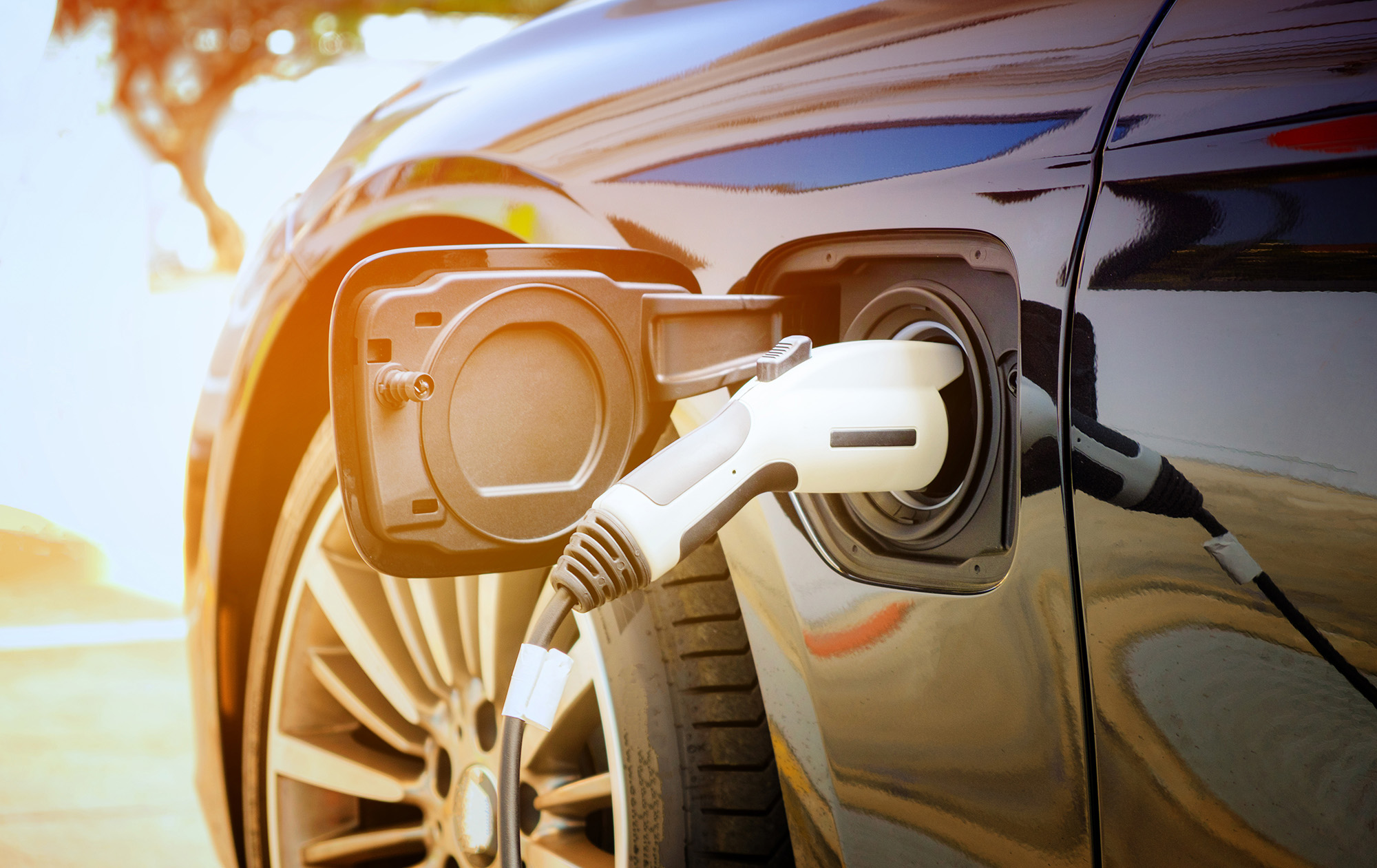EV Charging
Whether you already have an electric vehicle (EV) or you're planning to get one, there are many options for charging!
Types of chargers
Many factors determine the amount of time it takes to charge your EV. The existing charge level on the battery and the power the charger can deliver, as well as the battery size and temperature, all have an impact on how long it takes your EV to charge.
Level 1 (L1) charging requires nothing more than a standard 120-volt outlet and the cord and adapter that come with your EV. According to the U.S. Department of Energy (DOE), you can expect to receive between 2 to 5 miles of range per hour of charging on a Level 1 charger, which means you can add 20 to 50 miles of range over a 10-hour nightly charging session. That's plenty for the average commute!
Level 2 (L2) charging requires a 240-volt outlet, commonly used with household appliances such as an oven or electric dryer, and a home charging system. In general, Level 2 charging systems can charge an EV battery up to six times faster than a Level 1 charger. According to the DOE, you can expect to receive approximately 10 to 20 miles of range per hour for a Level 2 charger.
DC Fast charging, for CHAdeMo and CCS-equipped vehicles, is more commonly found in public areas and along interstates and highways. They are commonly used for driving between cities or on longer road trips. According to the DOE, you can expect to receive 60 to 80 miles of range in 20 minutes of charging.
Charging at home
Nearly 80% of EV charging occurs at home. It's easy to plug in to a standard outlet every time you pull into your garage; however, installing a Level 2 charging station allows you to charge faster. The cost to charge your car at home depends on many factors, including battery capacity or size and your electricity rate. Using a Level 1 or 2 charging system changes the length of time needed to charge but not the cost.
Charging your vehicle during off-peak hours, primarily at night, when less electricity is used can help you save money if you enroll in MGE's Time-of-Use rate or our Charge Ahead program. With Time-of-Use, you will be charged less for your electricity usage during off-peak hours (9 p.m. to 10 a.m. Monday through Friday). With Charge Ahead, you can earn rewards for allowing MGE to manage your EV charging for you.
Charging at apartments and condos
Since more than 50% of Madison residents are renters, more apartment buildings are adding EV charging to their amenities. Plus, many area property owners and developers are installing EV charging stations to meet the needs of current residents while attracting new ones.
Resources for property owners and developers
MGE has requested regulatory approval for a program that will provide allowances for property owners and developers who install charging at their facilities. If you'd like to receive updates when the program is available, please submit our EV Charging Rebate form.
Workplace charging
Since more and more drivers are making the switch to EVs, many local businesses are adding EV charging at their workplace. Installing charging stations at your business can create a selling point for employees and potential hires to charge their vehicles at work.
Resources for employers
MGE works with employers to get their workplace charging programs off the ground by:
- Connecting you to local companies that have already gone through the process.
- Conducting a survey for your employees to gauge interest.
- Helping you understand how EV charging may affect your bill.
- Assisting with EV charging infrastructure and evaluating charging equipment options.
To learn more, call us at 608-252-7000 (Option 4 then Option 3) and ask for a business account manager to get started.
In addition, Charge@Work is a federally funded program to help employers plan and implement EV charging at their sites. Visit chargeatwork.org to learn more.
MGE Charging Network
MGE's public charging stations provide 100% clean electricity from wind farms.
Find a station

